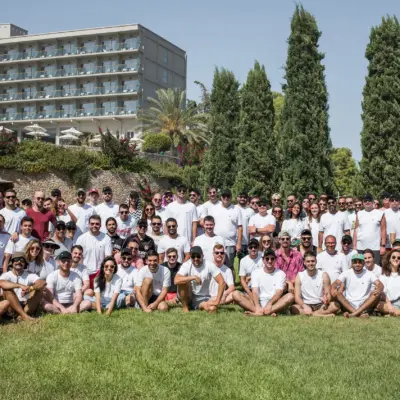Buy now, pay later startup Tabby, located in the MENA region, has secured $58 million, headed by Sequoia Capital India and STV, for a $660 million value. In June of last year, the investors co-led the fintech’s Series B expansion round.
One of the participating investors is PayPal Ventures, the company’s international corporate venture division. Arbor Ventures, Mubadala Investment Capital, and Endeavor Catalyst are among the additional investors in Tabby’s newest round of funding.
The cash will be used to extend Tabby’s product range into a variety of consumer financial services and support the company’s expanding activities, which now include Egypt, according to a statement released by the Dubai-based business. Since its 2019 debut, the fintech has raised more than $410 million in equity and debt.
Tabby, which enables users to purchase with flexible payments from international companies like H&M, Adidas, IKEA, noon, and Bloomingdale’s, was available in Saudi Arabia, the United Arab Emirates, and Kuwait up until last September.
Hosam Arab, co-founder, and CEO described Egypt as an appealing market with underbanked consumers looking for methods to spend online outside of what is readily available to them, which is cash, in a TechCrunch interview from last June.
“At the moment, the Egyptian customer is rather accustomed to paying in installments, which typically entail additional expenditures in the form of interest or penalties. Hosam Arab gave an update on how the expansion has gone. “Coming in with a cost-free solution for the client has been quite a distinction, and we’ve seen a lot of strong demand there,” he said.
UAE’s BNPL startup Tabby grabs $54M funding
The Egyptian market and economy are currently facing certain challenges due to the country’s ongoing currency devaluation, Hosam continued. Therefore, there are obvious obstacles in this market’s path that go beyond simple consumer expectations, at least in the short to medium term.
Consumer expectations vary by country, and understanding the specifics of each market is sufficient for a fintech to survive. BNPL might be viewed as a nice-to-have in industrialized nations where credit is typically available through credit cards, mostly due to its installment feature.
However, BNPL has a more compelling use case for developing countries where credit penetration is limited or having a credit history is too much to ask. Because of this, Hosam thinks his startup is relatively shielded from the problems afflicting global private and public BNPL companies Affirm, Afterpay, and Klarna, which have turned out to be worrisomely loss-making and consequently seen drops in their price.
“I’d say there have been pullbacks in terms of demand. The CEO argued for Tabby’s expansion in a slowing BNPL market by pointing to the impending credit crunch that could affect some of these more established economies and raise credit risk. This might harm these companies’ bottom lines.
“Now, in some of the markets Tabby is in right now, the economic structure is different. In comparison to other developed markets, the MENA area has much lower credit penetration. Consumers are not overextended in terms of credit risk because they don’t have two or three credit cards. Therefore, we are filling a real need and opportunity from the standpoint of demand.
Tabby has managed to double its valuation from 18 months ago despite the valuation crunches and weak demand for growing firms globally; as a result, it is today one of the most valuable startups in the MENA area.
According to Arab, acquiring this current price demonstrates Tabby’s product relevancy and capacity to establish a viable company in an industry with start-ups like Saudi Arabia’s Tamara and Egypt’s Sympl and Khazna.
The significance of Arab mentions is seen in Tabby’s most recent stats. For instance, in March of last year, the buy now, pay later upstart had just over 1 million active members who made more than 3,000 purchases a year. Today, according to Tabby, more than 3 million customers shop from more than 10,000 brands, including nine of the ten top retail groups in MENA.
Six months after establishing its cards program, the financial company also issued more than 150,000 Tabby Cards, and over 10% of business volumes are now generated in-store. The corporation reported a 5x rise in revenues over the previous year.
Speaking on the investment, GC Ravishankar, managing director at Sequoia Capital India, said Tabby had the chance “to offer various unique products to its clients and increase access while creating more affordability.”
CEO Arab spoke on how Tabby has introduced a product for everyday expenditures like food and groceries that will enable customers without access to credit cards to make purchases and pay at the end of the month.
When we consider providing consumers with improved financial services and solutions, there are obvious holes in the market. Allowing our clients to use us for their regular purchases is an area where we see a lot of possibilities, the CEO said. “As our consumers begin to do business with us more frequently, we feel this to be a terrific chance to enable greater interaction with them.”
Image Credit: Tabby
News Source: TechCrunch





